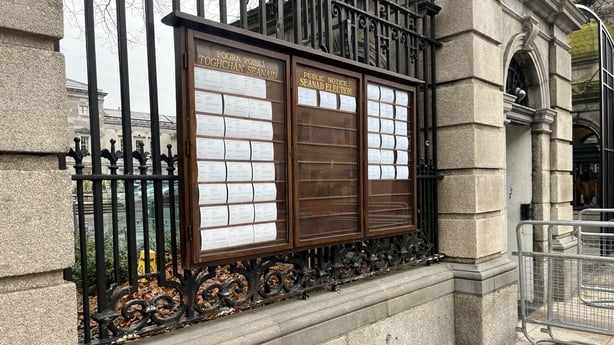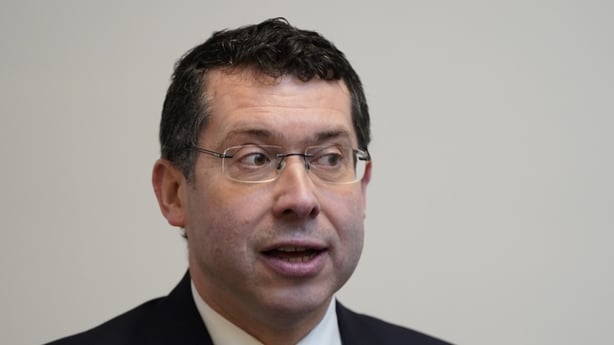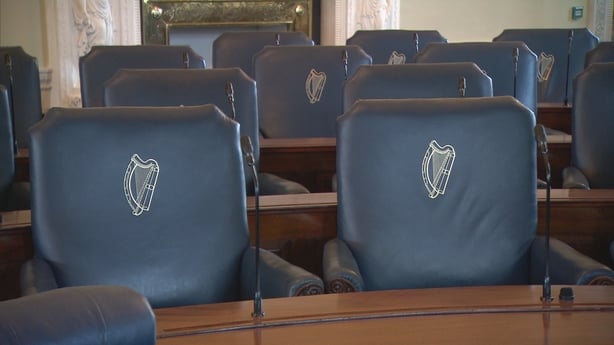The deadline for nominations to the Seanad Vocational panels closes today with 43 seats to be filled across five panels.
Some candidates have been nominated for the panels, loosely akin to constituencies.
There are 60 seats in the upper house of the Oireachtas, the primary function of which is to debate legislation.
Unlike local and Dáil elections, the pool of voters is much smaller.
Eleven senators are nominated by the Taoiseach.
This year, Simon Harris and Tánaiste Micheál Martin are expected to decide on these nominees as part of an expected arrangement on a rotating taoiseach in the next government.
A candidate is required to have knowledge and practical experience in the panel they are nominated to.
The vocational panels are:
- Administrative - seven seats
- Agricultural - 11 seats
- Cultural and Educational - five seats
- Industrial and Commercial - nine seats
- Labour - 11 seats

TDs, outgoing senators and councillors are eligible to vote for nominees to the industrial panels, accounting for about 1,200 voters.
Of the 141 nominees, many are outgoing senators. There are also numerous former TDs and candidates who were not successful in November's General Election.
The nominations are made by Oireachtas members as well as by members of the Register of Nominating Bodies from trade unions and non-governmental organisations to diverse groups such as The Native Irish Honey Bee Society and The Writers’ Guild of Ireland.
Separately, six candidates are chosen by around 190,000 graduates of the National University of Ireland (NUI) and Trinity College Dublin (TCD), who are Irish citizens.
These seats are always hotly contested and perhaps a bit more familiar to followers of politics, considering the larger electorate.
"I’m always a nervous nelly in elections. I was brought up to be cautious," said outgoing Independent Senator Rónán Mullen.
He added that he is hopeful of retaining his seat, however, in his fifth election.

Research consistently shows that incumbency plays an important role in success in local and general elections.
It is an advantage in Seanad votes too, particularly when door-to-door canvassing is not an option.
Senator Mullen said: "Profile matters, there’s no doubt, but I never take it for granted. I’d like to be in the media more often with my message on things.
"It’s always very hard ... and what none of us ever knows is if we have enough of it to succeed."
This is the last Seanad election in which only graduates of TCD and NUI are eligible to vote.
In future, all graduates of around 60 existing or historical higher institutions will be able to cast a ballot for the Seanad Higher Education Constituency.

Senator Mullen said that he always has an eye on the next election and is disappointed the process to register is not simpler.
He pointed out that everyone on the NUI and TCD panels will be deregistered and have to re-register for the next election.
NUI and TCD have written to their graduates, Senator Mullen added.
He urged them to register on seanadvoter.ie but said he feels that puts people who are not computer literate at a disadvantage.
The deadline for applications to be included on the register for future Seanad elections is 23 January.
Postal voting for the two University panels is under way and closes on Wednesday 29 January at 11am.
Voting for the Vocational panels closes at 11am on Thursday 30 January, with counting starting shortly after polling closes.







